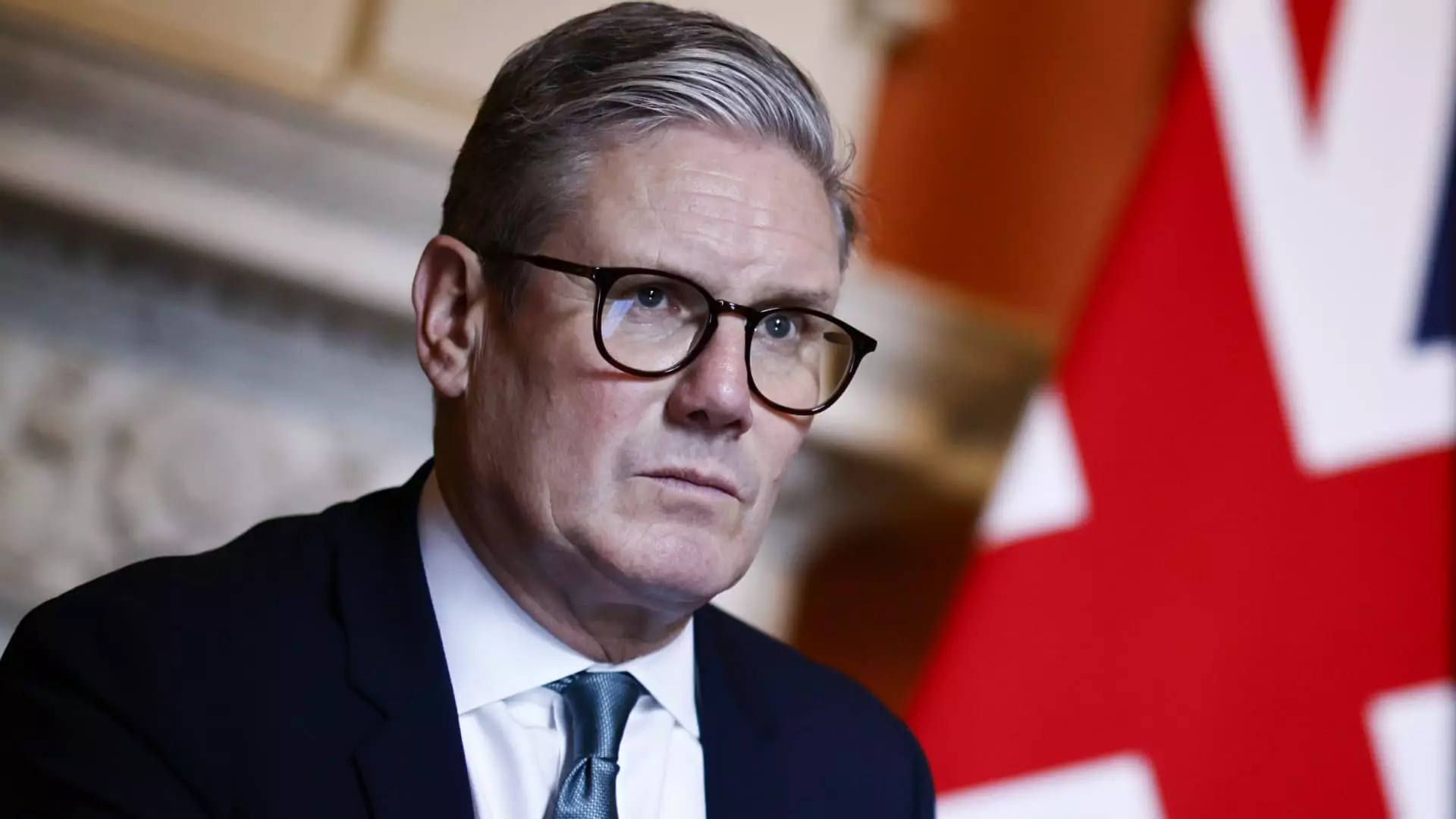In recent years, relations between the United Kingdom and Europe have been marred by a series of political upheavals and challenges, most notably stemming from Brexit and the persistent threat of geopolitical instability. These tensions have not only affected bilateral relationships but have also garnered concerns regarding collective security and cooperation amongst European nations. Against this backdrop, the new Labour Prime Minister, Keir Starmer, is taking significant steps to mend and strengthen ties with continental partners, showcasing a renewed commitment to collaboration on shared issues.
Starmer’s initiative comes to fruition as he convenes over 45 heads of state at the iconic Blenheim Palace, marking a pivotal moment in diplomatic relations. The choice of venue—Winston Churchill’s birthplace—imbues the summit with historical significance, symbolizing a potential rebirth of unity akin to the resolve exhibited during the turbulent times of the 20th century. Starmer’s address is set to emphasize that the mounting challenges facing Europe cannot be tackled in isolation; rather, a cohesive response is paramount for the region’s security and stability.
In a statement from Downing Street, Starmer articulated his vision, stating, “We cannot let the challenges of the recent past define our relationships of the future.” This assertion not only indicates a desire to move forward but also highlights an acknowledgment of the necessary evolution in foreign policy towards a more integrative approach.
Starmer’s coming to power occurs amid the rising shadow of a potential second Trump administration in the United States—a scenario that raises palpable anxiety across European capitals. The Republican nominee’s known skepticism regarding transatlantic alliances, particularly the NATO framework, challenges European nations to rethink their defense strategies and funding commitments.
In response to this unpredictability, European NATO members, including the UK under Starmer’s administration, are ramping up defense expenditures, committing to a spending goal of 2.5% of the UK’s GDP. This financial commitment reflects an awareness of shifting alliances and the need for a fortified European security apparatus, signaling that the continent must be prepared to act decisively in the face of external threats.
With the commencement of this summit, Starmer is poised to assert a “more active and greater convening role” for the UK within the European framework, aiming to transform Britain’s role from that of an isolated entity to an engaged partner on the global stage. This summit represents an early opportunity for strategic dialogues with European leaders, including attendance at prior NATO discussions. The inclusion of members from other significant organizations such as the Organisation for Security and Cooperation in Europe and the Council of Europe indicates a broader commitment to collaborative governance and mutual support.
Despite the optimistic momentum behind the summit, skepticism remains regarding its potential outcomes. Previous European Political Summits have faced criticism for the lack of tangible results, with detractors questioning the need for yet another forum in an already crowded diplomatic landscape. Therefore, Starmer’s administration must not only foster conversations around pressing themes—like migration, energy resources, and democratic resilience—but also ensure that the discussions translate into actionable policies and commitments.
Ultimately, the success of this initiative will depend on Starmer’s ability to galvanize support for a united European front that responds effectively to both internal and external challenges. The expectations are high, as the stakes have never been greater for Europe in navigating an unpredictable global landscape.
As such, this gathering is not merely a diplomatic exercise; it is a crucial moment for laying the groundwork towards a revitalized and united Europe, capable of addressing its challenges head-on while preserving the ideals of security and cooperation. Keir Starmer’s vision represents a hopeful re-engagement with Europe, one that aspires to transcend past discord and forge a path of united purpose.


Leave a Reply